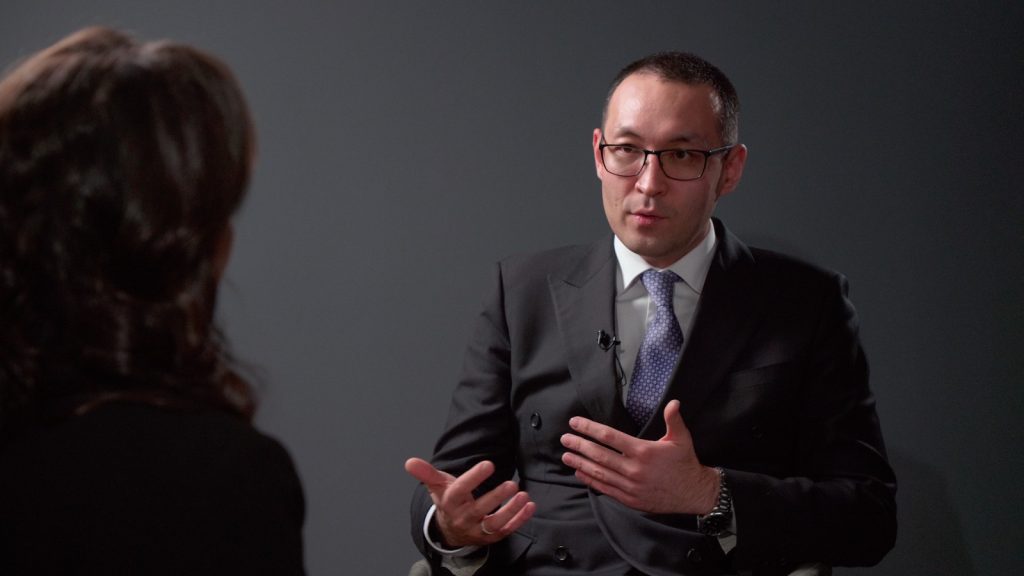ASTANA – As Kazakhstan continues to advance its central bank digital currency and open banking framework, Binur Zhalenov, the chief digital officer at the National Bank of Kazakhstan (NBK), stated that the digital tenge could revolutionize the movement of money. In an interview with The Astana Times YouTube channel, he discussed the necessity of a digital currency for Kazakhstan and the relevance of cash in contemporary society.
Increased Focus on Digital Currency
Across the globe, central banks have been investigating digital currency options, with China leading the charge by launching its digital yuan (e-CNY) in a pilot project back in 2017. Zhalenov, who is also the chair of the National Payment Systems Corporation, noted, “The most developed projects, for example, are in China.” The Atlantic Council reports that 65 countries are at an advanced stage of developing, piloting, or launching their digital currencies.
Zhalenov highlighted that the introduction of the digital tenge is a logical advancement for Kazakhstan, a project driven by the NBK since 2021. “We believe that a digital economy necessitates digital means of payment,” he remarked, clarifying that consumers seek secure and affordable payment methods, rather than distinguishing between digital and electronic money.
Advantages of Digital Tenge
The digital tenge functions like digital cash, mixing elements of public money issued by the central bank with private money associated with commercial institutions. While cash is backed by the government, making it stable, Zhalenov pointed out that private money carries risks tied to the issuing bank’s stability. The digital tenge aims to merge the strengths of both forms of currency, enabling use via banking applications and debit cards.
Innovatively, Kazakhstan’s digital tenge utilizes blockchain technology, incorporating programmability that can enhance government spending efficiency and accountability. The central bank envisions applications in payment settlement for digital assets as part of a broader agenda tied to financial stability and consumer protection, helping bridge traditional finance and decentralized assets.
Future Implications
Zhalenov predicts that most upcoming real-world applications of the digital tenge will center around government spending. He noted that approximately 60% of the budget, equating to around five trillion tenge (US$9.9 billion) annually, focuses on social initiatives. The programmability of the digital tenge could facilitate instant access to government aid, unlike the current lengthy processes.
While acknowledging the persistent need for cash, Zhalenov emphasized the importance of choice in payment methods, stating, “Inclusivity isn’t about pushing everyone into digital — it’s about giving everyone options.” He firmly believes that cash will continue to hold relevance for several decades, even in an era increasingly dominated by digital transactions.
Zhalenov expressed confidence that Kazakhstan has established itself as a global leader in fintech, offering unique solutions that integrate public services with private innovation. This includes enabling Kazakh consumers to handle various transactions entirely online, showcasing the successful collaboration between fintech entities and the government.



